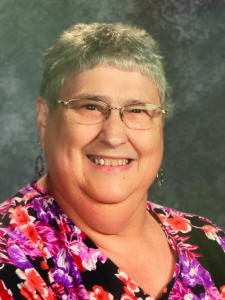
Nov 1, 2020
By Althea Rood
Having been SCSC training director for several years, I have had the joy of being able to watch God develop leaders. About a year ago, I attended pastors’ conference and had my joy multiplied as I watched several former SCSCers lead in worship, Bible study, etc. It gave me an opportunity to rejoice in what God has done in these young men and women. It also gave me a chance to reflect on what I believe are key components in leadership development.
Each year at SCSC training, I would try to balance spiritual growth and skill-building needed for the projects. I was very aware that I could not give what I did not possess so I seriously pursued my own spiritual growth. One area addressed in various ways each year was learning to develop spiritual disciplines1 (e.g. silence, solitude, prayer, meditation, fasting, simplicity, Bible study, journaling, Sabbath, etc.) to learn to grow one’s personal relationship with God. Learning to take care of one’s soul is of absolute importance for leaders. It is through times spent with God that a leader develops a “being with God” that can sustain one’s “doing for God.” In the area of skill-building, we emphasized use of the traditional spiritual gifts or motivational gifts inventories to help identify giftings. Skills needed for church projects—whether leading worship, leading Bible study, leading music, leading recreation, etc.—were modeled and practiced. In addition, staff modeled a life message much like Jesus did with His disciples—the message was taught and caught. We also worked on relationship building.
However, if I were to develop a leadership training model now, I would try to incorporate several other areas. The emotional realm is an area where we have not helped our leaders enough. “Leaders may be unaware of their feelings, their weaknesses and limits, how the past impacts their present, and how others experience them. They also lack the capacity and skill to enter deeply into the feelings and perspectives of others.”2 In addition to counseling, it would be helpful for potential leaders to develop their genogram.3 Taking a look at their past 3-4 generations can enable them to identify the blessings and sins of their families that may still impact who they are today. This will enable them to become aware of and break unhealthy, sinful patterns in their family of origin to fulfill their God-given purpose.
Training in the relational realm is also important. The potential leader needs to learn to clarify what another person in thinking instead of making assumptions—to recognize whether certain expectations are valid or not; to clarify values by processing thoughts and feelings; to listen at a heart level with empathy; to be attuned to the words and nonverbal cues of another person; and to become aware of one’s emotions with the goal of processing them and discerning God’s will.4
Developing leaders takes discernment, investment of time and energies, and a coming-alongside-of discipleship that is both spiritually, emotionally, and relationally healthy. The goal is to develop leaders who are authentic, transparent, resilient, and deeply committed to God. God desires not only gifted leaders but leaders who exhibit character. We need to seek spiritual eyes to identify those whom God may have chosen. In our churches, we need to observe, encourage, and give opportunities to our youth, young adults, and adults to develop their gifts and abilities.
May we as Seventh Day Baptists commit ourselves to develop leaders through on-the-job training, mentoring, interning, SCSC, dedicated service, mission trips, and any other means available. Let us advance His Kingdom!
1 Foster, Celebration of Discipline, HarperOne
2 Scazzero, The Emotionally Healthy Leader, p. 25, 2015, Zondervan
3 Scazzero, Emotionally Healthy Spirituality, p. 73, 2017, Zondervan
4 Scazzero, Emotionally Healthy Relationships, p. 149, 2017, Zondervan
 Althea Rood is a wife (Dale), mother (Kristin Camenga and Jeff), grandmother (Donovan R, Elisa C & Annika C), retired high school math teacher and tutor. She delights in investing in others’ lives and in seeing others succeed. Her passion is to “become all God intends for me to be.” She has served as SCSC training director, as a past president of SDB General Conference and the SDB Women’s Society, and is presently the point leader for the Emotionally Healthy Discipleship course in Anchor of Hope Church, a Seventh Day Baptist Church, Dodge Center, MN.
Althea Rood is a wife (Dale), mother (Kristin Camenga and Jeff), grandmother (Donovan R, Elisa C & Annika C), retired high school math teacher and tutor. She delights in investing in others’ lives and in seeing others succeed. Her passion is to “become all God intends for me to be.” She has served as SCSC training director, as a past president of SDB General Conference and the SDB Women’s Society, and is presently the point leader for the Emotionally Healthy Discipleship course in Anchor of Hope Church, a Seventh Day Baptist Church, Dodge Center, MN.

